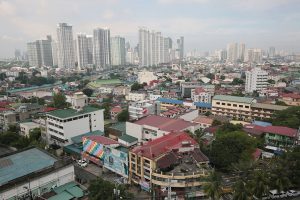[B-SIDE Podcast] Revolutionizing coconut farming in the Philippines

Given their higher yield and early bearing characteristics, coconut hybrids offer Filipino coconut farmers a means to improve production, according to an expert.
In this B-Side episode, Leilani D. Pelegrina, director at the Department of Science and Technology-Philippine Council for Agriculture, Aquatic, and Natural Resources Research and Development (DoST-PCAARRD), discusses the impact of coconut hybridization on coconut farming with BusinessWorld reporter Patricia B. Mirasol.
TAKEAWAYS
Coconut hybrids yield more output with the same level of management.
Coconut hybrids can increase the annual yield of each palm to 150 nuts per year, compared to 45 nuts with traditional coconuts.
Hybrids begin flowering within 3 to 4.5 years, faster than the average 3 to 7 years for traditional coconuts, leading to potential fruit harvesting in 4 to 5 years instead of 3 to 7.
While one farmer claimed to have observed flowering after 18 months, further replication and verification are necessary, according to Ms. Pelegrina.
The potential yield per hectare for traditional coconut varieties is 15,000 nuts per year.
Based on the Philippine Statistics Authority’s farmgate price of P10.47 for a young coconut or buko, farmers cultivating traditional varieties can expect annual sales of around P157,000.
In contrast, a hectare of hybrid coconuts has the potential to yield 22,000 nuts per year, equivalent to approximately P230,340.
Additionally, intercropping practices, such as cultivating cash crops like vegetables, coffee, and cacao, can provide farmers with additional income.
Coconut production in the country increased by 1.6% to 3.26 million metric tons in the first quarter of 2023 compared to the same period in 2022, driven by increased awareness of coconut benefits and growing demand for coconut-based products in major developed countries, as per the Philippine Information Agency.
The coconut hybridization program in CALABARZON (Cavite, Laguna, Batangas, Rizal, and Quezon) will be expanded nationwide.
Funded by the DOST-PCAARRD, the program aimed to enhance the production and sustainability of coconut hybrids in Region IV-A from 2018 to 2022.
The Philippine Coconut Authority (PCA) implemented the project using two hybridization schemes: directed natural pollination and assisted pollination.
Four project sites were involved in the former (Institute of Plant Breeding in Los Baños, Oliveros Farm in Laguna, Stuart’s Farm in Quezon, and Villa Escudero in Laguna), while two project sites were designated for the latter (DFarm in Quezon and Feria’s Farm in Quezon).
Developing coconut hybrids entails combining exceptional parental mother palms (such as the Catigan Green Dwarf and Malayan Red Dwarf) with parental pollen source palms (such as Bago Oshiro Tall, Baybay Tall, Laguna Tall, and Tagnanan Tall). It takes at least 15 years of continuous research to develop coconut hybrid varieties.
“We are scaling this coconut hybridization program nationwide through the coconut farmers and industry trust fund (CFITF),” Ms. Pelegrina said.
Under the Coconut Farmers and Industry Fund Act (Republic Act 11524), farmers can utilize the coconut trust fund to develop the industry.
The fund, initially derived from the coconut levy imposed on farmers in the 1970s, was seeded with capital recovered from the levy.
The DoST received the first tranche of funds from the CFITF in 2022, with 20% of the allocation dedicated to coconut hybridization.
The PCA manages 15% of the funds for operations and activities, while 5% is overseen by the council for research and development, according to Ms. Pelegrina. Budgets from the fund will be received on an annual basis for five years.
The PCA aims to raise its coco levy fund allocation by P11 billion in 2024.
The P75-billion CFITF is facing challenges in hiring personnel and commissioning a study to improve the coconut industry, as the coco levy fund does not cover administrative costs, according to PCA administrator Bernie F. Cruz in a June 26 news briefing.
Filipino farmers can already apply to be accredited as program partners.
The PCA has a process for accrediting private farms, involving prerequisites, Ms. Pelegrina explained. Farmers can visit any PCA office or approach the DOST-PCAARRD, which can then refer them to the PCA.
“The first step should be to write to the PCA and express their intent to be considered as an accredited farmer cooperator,” Ms. Pelegrina said.
She added that at least 5 hectares would be effective for an area to be accredited as a farm, and accreditation includes training sessions on pest management and good agricultural practices.
Stakeholders have emphasized that, in addition to producing coconut hybrids, improving transportation infrastructure and farmers’ access to loans will further promote the coconut industry.
The Philippines is home to 2.5 million coconut farmers, with 69 out of the country’s 82 provinces classified as coconut-producing by the PCA.




